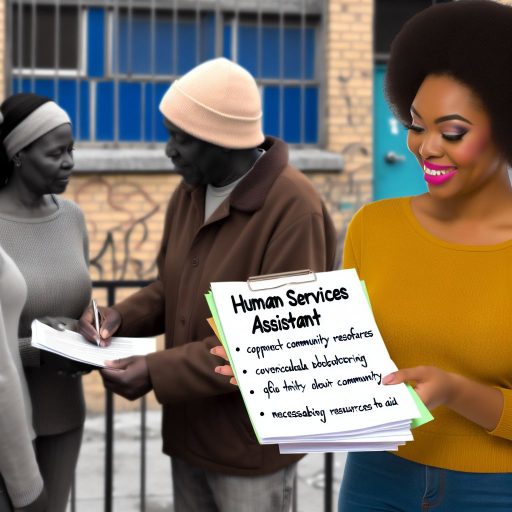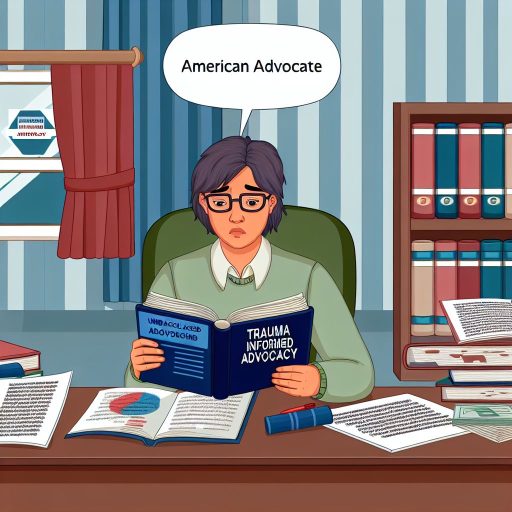Introduction:
A Disability Services Coordinator is responsible for facilitating services for individuals with disabilities.
This role is crucial in providing support and resources to help individuals overcome barriers.
Advocacy and Support
The primary responsibility of a Disability Services Coordinator is to advocate for individuals with disabilities.
They provide emotional support and guidance to help individuals navigate their challenges.
Communication and Collaboration
Effective communication is essential for a Disability Services Coordinator to coordinate services.
They work closely with individuals, families, service providers, and other stakeholders.
Assessment and Planning
Another key responsibility is to assess the needs of individuals with disabilities.
They develop personalized plans to address specific goals and objectives.
Resource Management
Disability Services Coordinators are responsible for identifying and securing resources for individuals.
They ensure that individuals have access to necessary support services and accommodations.
Compliance and Documentation
It is essential for Disability Services Coordinators to maintain accurate documentation and comply with regulations.
They ensure that individuals receive appropriate services and accommodations in accordance with the law.
Disability Services Coordinators play a vital role in supporting individuals with disabilities.
Through advocacy, communication, assessment, resource management, and compliance, they help individuals achieve their full potential.
Education and Training Requirements:
– A bachelor’s degree in social work, counseling, psychology, or a related field is typically required.
– Some employers may prefer candidates with a master’s degree in disability studies or a related field.
– Specific certifications such as Certified Rehabilitation Counselor (CRC) or Certified Disability Management Specialist (CDMS) can be advantageous.
– Training programs focused on disability services coordination, case management, and advocacy are beneficial for this role.
Understanding Laws and Regulations
Key federal laws governing disability services include the Americans with Disabilities Act (ADA).
Transform Your Career Today
Unlock a personalized career strategy that drives real results. Get tailored advice and a roadmap designed just for you.
Start NowState laws may vary but often align with federal guidelines to protect individuals with disabilities.
Disability Services Coordinators must be familiar with both federal and state regulations.
It is crucial for coordinators to stay updated on any changes or amendments to existing laws.
Regular training and professional development sessions can help coordinators remain compliant.
- Key federal laws governing disability services include the Americans with Disabilities Act (ADA).
- State laws may vary but often align with federal guidelines to protect individuals with disabilities.
- Disability Services Coordinators must be familiar with both federal and state regulations.
- It is crucial for coordinators to stay updated on any changes or amendments to existing laws.
- Regular training and professional development sessions can help coordinators remain compliant.
See Related Content: Community Health Workers in Rural vs. Urban Areas
Assessing Individual Needs:
Conducting assessments to determine specific needs:
Assessments involve gathering information through interviews, observations, and tests to understand an individual’s abilities and limitations.
Assessments may also include reviewing medical records and consulting with healthcare professionals to provide a comprehensive evaluation.
These assessments help identify the type and severity of disabilities, as well as any underlying medical conditions that may impact services.
Overall, the goal is to gather data that paints a clear picture of the individual’s physical, cognitive, emotional, and social functioning.
Development of individualized plans and services:
Based on the assessment findings, disability services coordinators work collaboratively with the individual and their support network to develop personalized plans.
These plans outline specific goals, strategies, accommodations, and resources needed to address the individual’s unique needs and enhance their quality of life.
Individualized plans may include access to therapies, assistive technologies, transportation services, housing accommodations, educational support, and vocational training.
Collaboration with medical professionals, therapists, educators, employers, and community resources is key to ensuring a holistic and effective plan.
See Related Content: Essential Qualities of a Successful Life Skills Instructor
When it comes to the responsibilities of a Disability Services Coordinator, collaborating with stakeholders plays a crucial role in ensuring the well-being and success of individuals with disabilities.
The Importance of Building Relationships with Clients, Families, and Other Professionals
- Establishing trust and rapport with clients and their families is essential for effective communication and support.
- By building strong relationships, Disability Services Coordinators can gain a deeper understanding of the needs and preferences of individuals with disabilities.
- Collaboration with other professionals, such as healthcare providers and educators, allows for a holistic approach to addressing the needs of clients.
- Networking with stakeholders in the disability services field can lead to valuable partnerships and access to additional resources.
- Strong relationships with stakeholders help in creating a supportive network for individuals with disabilities, promoting their overall well-being and quality of life.
The Role of a Disability Services Coordinator in Coordinating Services and Resources
- One of the primary responsibilities of a Disability Services Coordinator is to coordinate a range of services and resources to meet the unique needs of individuals with disabilities.
- By working closely with clients, families, and professionals, Disability Services Coordinators can develop comprehensive plans tailored to the specific goals and challenges of individuals.
- Coordinating services may involve facilitating access to healthcare, education, vocational training, counseling, and other support services.
- Disability Services Coordinators also play a key role in advocating for the rights and needs of individuals with disabilities within the community and healthcare systems.
- Through effective coordination of services and resources, Disability Services Coordinators help individuals with disabilities achieve greater independence, inclusion, and overall well-being.
Collaboration with stakeholders is an essential aspect of the role of a Disability Services Coordinator. By building relationships with clients, families, and other professionals, Disability Services Coordinators can effectively coordinate services and resources to meet the diverse needs of individuals with disabilities.
See Related Content: Advancement Opportunities for Mental Health Technicians
Role of a Disability Services Coordinator in Advocating for Rights and Needs:
Advocating for equal access to education, employment, healthcare, and other services for individuals with disabilities.
Showcase Your Business Today
Reach thousands of readers actively exploring professional services. Publish your business profile and grow your audience now.
Publish NowRaising awareness about disability rights and fighting against discrimination and prejudice.
Collaborating with organizations and government agencies to influence policies that benefit individuals with disabilities.
Ensuring that clients are informed about their rights and empowering them to speak up for themselves.
Supporting individuals in navigating complex systems and advocating on their behalf when needed.
Providing Support Services:
Offering counseling services to help individuals cope with the challenges of living with a disability.
Referring clients to appropriate resources and services based on their specific needs.
Organizing workshops and training sessions to enhance skills and empower individuals to lead fulfilling lives.
Connecting clients with support groups and peer networks to foster a sense of community and belonging.
Providing assistance with accommodations and accessibility modifications to ensure inclusivity in all areas of life.
By advocating for the rights and needs of individuals with disabilities and providing support services, Disability Services Coordinators play a vital role in empowering clients to lead independent and fulfilling lives.
See Related Content: Technology’s Role in Crisis Intervention

Facilitating Accommodations
Implementing accommodations involves assessing the needs of individuals with disabilities in various settings.
In schools, disability services coordinators work with teachers to create individualized education plans for students.
Accommodations may include extra time for tests, assistive technology, or modifications to the curriculum.
At workplaces, coordinators help employees with disabilities access reasonable accommodations to perform their jobs effectively.
This can involve modifications to the physical workspace, flexible scheduling, or job coaching.
In community organizations, accommodations may focus on accessibility, communication support, or program modifications.
Importance of Effective Accommodations
Ensuring that accommodations are effective is crucial to promoting the inclusion and success of individuals with disabilities.
Effective accommodations help to level the playing field for individuals with disabilities, providing them with equal opportunities.
By tailoring accommodations to meet the specific needs of clients, disability services coordinators can maximize their potential.
Effective accommodations also contribute to a more inclusive and welcoming environment for individuals with disabilities.
When accommodations are not properly implemented or do not meet individual needs, it can hinder the progress and success of clients.
Regular communication and feedback with clients are essential to ensure that accommodations are working effectively and meeting their needs.
Monitoring Progress and Outcomes:
Tracking progress and outcomes is crucial for ensuring the effectiveness of services provided to individuals with disabilities.
Evaluating progress allows for adjustments to be made to interventions in order to better support the individual.
By monitoring outcomes, the Disability Services Coordinator can determine if goals are being met and if services need to be modified.
Progress tracking helps in identifying areas where individuals may need additional support or resources.
Assessing outcomes enables the coordinator to measure the overall success of the interventions and services being provided.
Role of a Disability Services Coordinator:
The Disability Services Coordinator plays a key role in evaluating the effectiveness of interventions and services.
They are responsible for collecting and analyzing data to assess progress and outcomes for individuals with disabilities.
By monitoring progress, they can identify any barriers or challenges that may be hindering the individual’s success.
It is important for the coordinator to work closely with the individual, their support network, and other service providers to track progress effectively.
Based on their findings, the coordinator may need to make adjustments to the intervention plan to better meet the individual’s needs.
When it comes to the role of a Disability Services Coordinator, one key responsibility is providing ongoing training and resources to support individuals with disabilities.
This ensures that professionals in this field are equipped with the necessary knowledge and skills to effectively support their clients.
Need for Ongoing Training
- Training is essential to stay current with new developments in the field.
- Professional development helps coordinators enhance their skills and expertise.
- Continuous learning enables them to better serve individuals with disabilities.
By engaging in ongoing training, Disability Services Coordinators can keep up-to-date with best practices and trends in the industry.
This allows them to provide high-quality services that meet the evolving needs of their clients.
Resources and Support
- Professional organizations offer training programs and workshops.
- Online resources provide access to educational materials and research.
- Mentorship opportunities allow coordinators to learn from seasoned professionals.
Additionally, Disability Services Coordinators can benefit from peer support networks.
Here, they can share insights and experiences with other professionals in the field.
These resources and support systems play a crucial role in helping coordinators stay current and continuously improve their practice.
Showcase Your Business Today
Reach thousands of readers actively exploring professional services. Publish your business profile and grow your audience now.
Publish NowProviding training and resources is a vital responsibility of a Disability Services Coordinator.
This ensures they are well-equipped to support individuals with disabilities effectively.
By investing in professional development and staying informed on best practices, coordinators can make a significant impact on the lives of those they serve.
Key Responsibilities of a Disability Services Coordinator
Assessing individual needs is a primary responsibility.
Developing personalized care plans ensures effective support.
Coordinating services helps clients access resources.
Advocating for clients empowers them in their pursuits.
Monitoring progress is essential for achieving goals.
These professionals play a critical role in supporting individuals with disabilities.
They assist clients in achieving their goals while living fulfilling lives.
Essential services and resources empower individuals to overcome barriers.
Ultimately, Disability Services Coordinators help clients thrive in their communities.
Additional Resources
Georgia Department of Human Services Division of Aging Services
HHS Agencies & Roles | HHS Careers
[E-Books for Sale]
The Big Book of 500 High-Paying Jobs in America: Unlock Your Earning Potential
$19.99 • 500 High-Paying Jobs • 330 pages
Explore 500 high-paying jobs in America and learn how to boost your career, earn more, and achieve success!
See All 500 High-Paying Jobs of this E-Book
1001 Professions Without a Degree: High-Paying American Jobs You Can Start Now
$19.99 • 1001 Professions Without a Degree • 174 pages
Discover 1001 high-paying jobs without a degree! Unlock career tips, skills, and success strategies for just $19.99!




